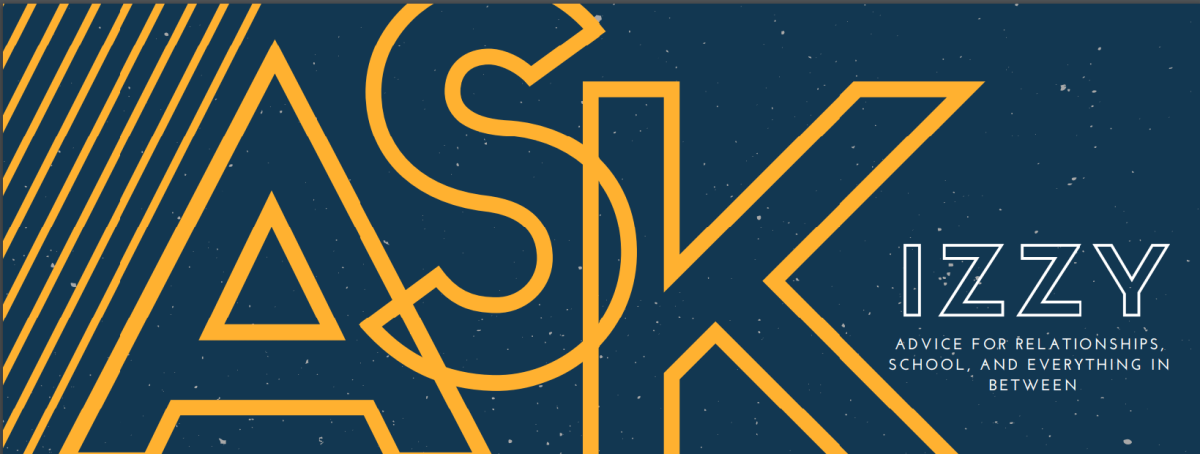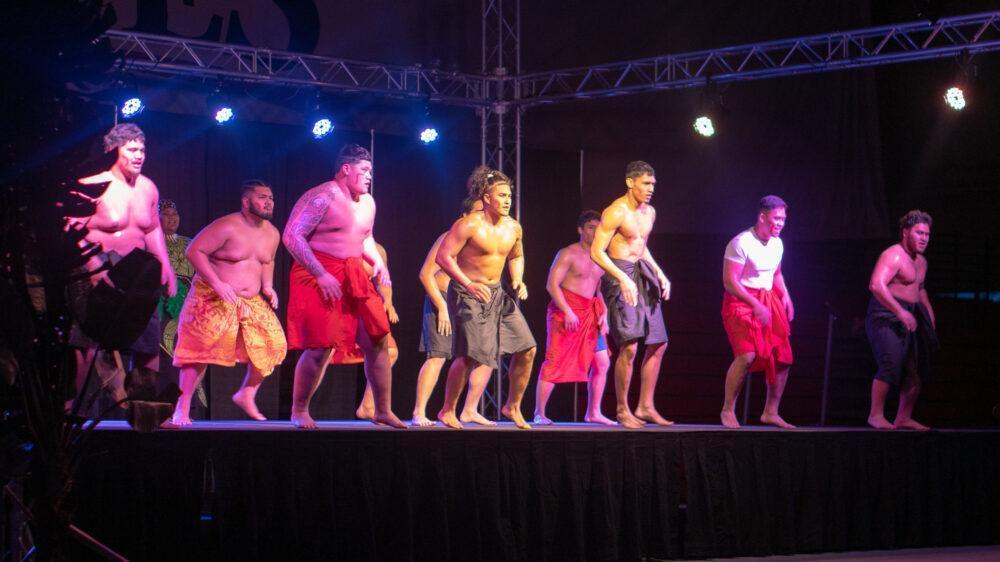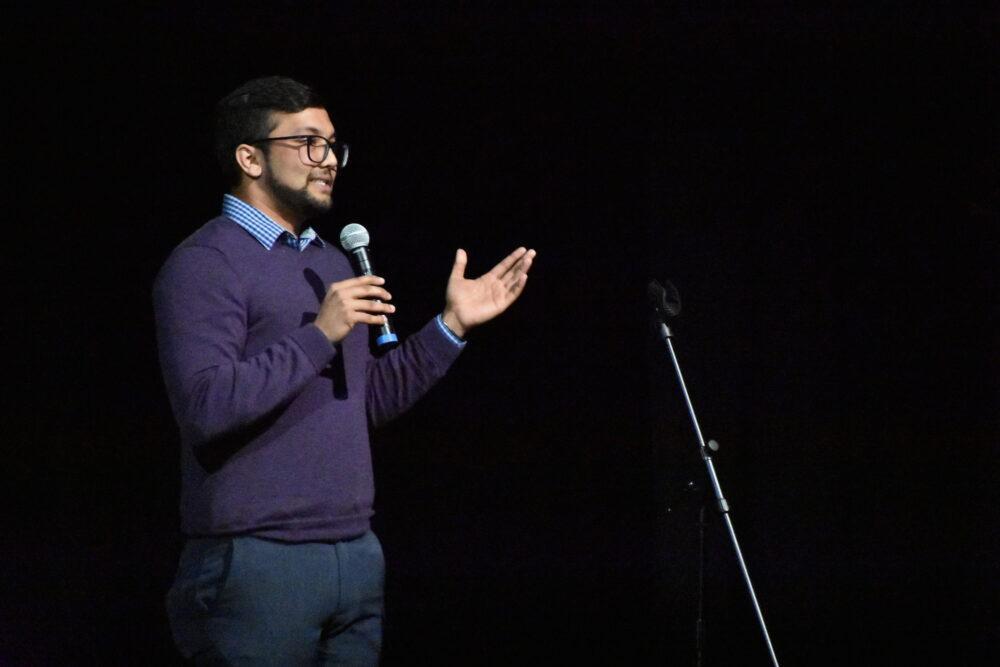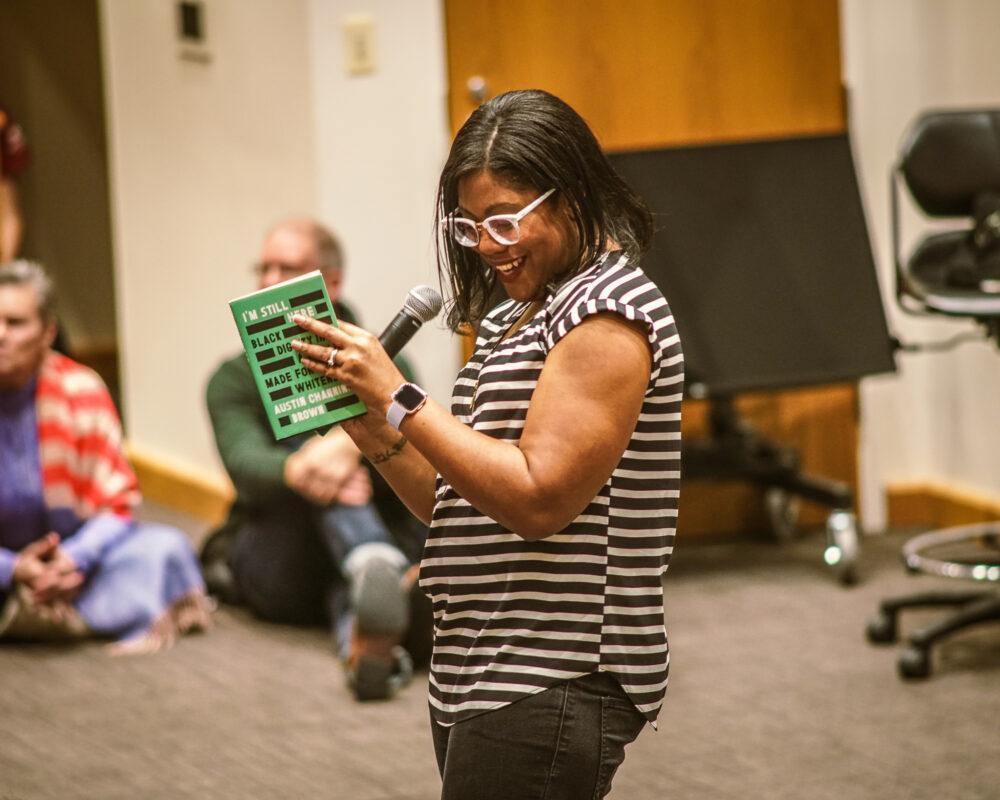
Kwanzaa is a holiday celebrated by the African American community and the African diaspora all over the world. UMOJA, the African Culture Club, and Black Student Union (BSU) partnered to put on an event about Kwanzaa on Nov. 29. The goal of the event was to introduce the holiday to students and explain its importance.
“[Kwanzaa is an] African American holiday rooted in African cultures. The idea is to remember the routes, culture and history of African Americans,” said Abebaye Bekele, the Co-president of UMOJA. “We wanted [UMOJA and BSU] to partner together because that’s what the holiday symbolizes.”
The evening began with a dinner for club members with the event’s speaker, Dr. Okera Nsombi, a professor from Eastern Washington University’s Africana Studies department. This was followed with Nsombi’s presentation on the importance of Kwanzaa for people of African descent that was open to all of campus.
Kwanzaa celebrates black family, community and culture. However, it is not practiced in many households of African descent, said Nsombi. In fact, many choose not to embrace the holiday. This decision stems from how African Americans have tried to deal with the trauma within their history.
Nsombi sees those of African descent as victims to the trauma of slavery. Like victims of kidnapping, slaves are forced to exist in a state where there is no free will, making it hard to reintegrate with their home and origins.
The source of the trauma originates from the dehumanization and oppression of those from African descent. Europeans took the Spanish adjective “negro,” which means black, to identify Africans. A new connotation was developed from European culture, and Africans were turned into less than human, derogatory beings.
Those of African descent did not go to “the source of the trauma,” but rather other places to try to deal with it, said Nsombi. One way they did this was by trying to be “more American,” ultimately through replacing their loyalty and culture.
Nsombi also explained a problem within education that affects the response to the trauma. Nowadays, education has become “training,” which is just memorization, and lacks “true development.”
“We turned to looking at information that was based on our historical experience, but we approached it in the wrong way,” said Nsombi. “The lowest level of knowledge is memorization, which is why most of us forget what we learn. The highest level of knowledge is synthesis, incorporating it into your life.”
Nsombi sees Kwanzaa and African rituals, which he defined as “a prescribed code of behavior regulating social conduct,” as a way to help with the trauma of the past.
“Human beings are naturally born with certain appetites that can rule and control over us,” said Nsombi. “If you do not intervene in human development and set certain structures, then you end up with people constantly pursuing sex, greed, aggression, and anger.”
He said that this is why Africans instituted rituals. Rituals are not to simply be memorized, but something that can be very powerful if you have the right awareness and orientation to pursue it. It is not enough to simply say that slavery is over, because people are still struggling through the trauma. Rather, people can be grounded through culture, which can “restore the broken part of our humanity.”
“The significance of Kwanzaa is not you simply knowing it exists, but knowing why is it important for you,” said Nsombi.
Both clubs expressed appreciation for the ideas and perspectives Nsombi presented.
“The way we learn about black history is never through an inspirational black lens… it’s hard to be proud of who I am,” said Lajhaya Lewis-Harrell, the treasurer of BSU. “For example, it’s an issue to be pro-black. Certain people will find offense in that because it feels like an attack on them for me to feel proud of my culture. I definitely appreciate Kwanzaa because it’s a way to be proud of myself.”
Audience members also felt impacted by the presentation.
“I think that his presentation was not easy to hear,” said Eniola Fatade, a member of the UMOJA. “It kind of makes you uncomfortable about the things that you have become comfortable with.”
For more information about UMOJA, email Abebaye Bekele at abekele20@my.whitworth.edu or Theresa Chowa at tchowa20@my.whitworth.edu.
For more information about BSU, email bsuwhitworth@gmail.com.
More information on Kwanzaa can also be found at www.history.com/topics/holidays/kwanzaa-history.











 Spokane?
Spokane?